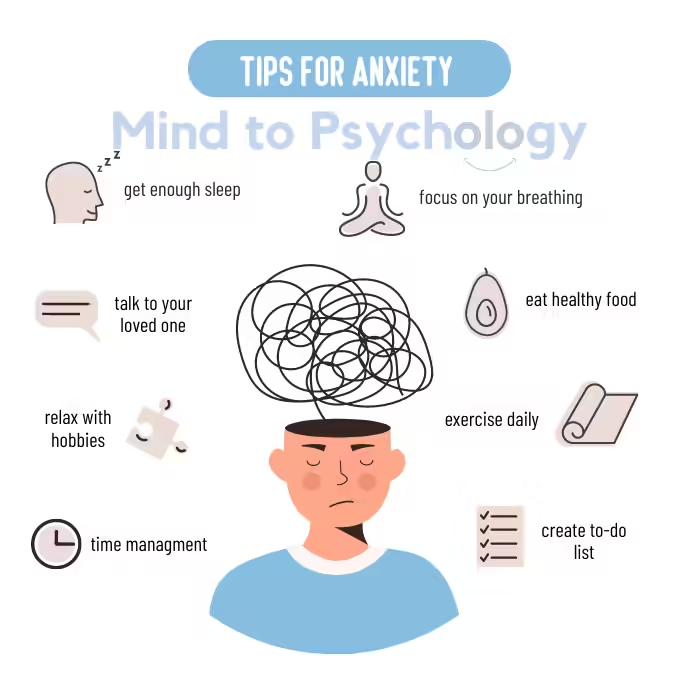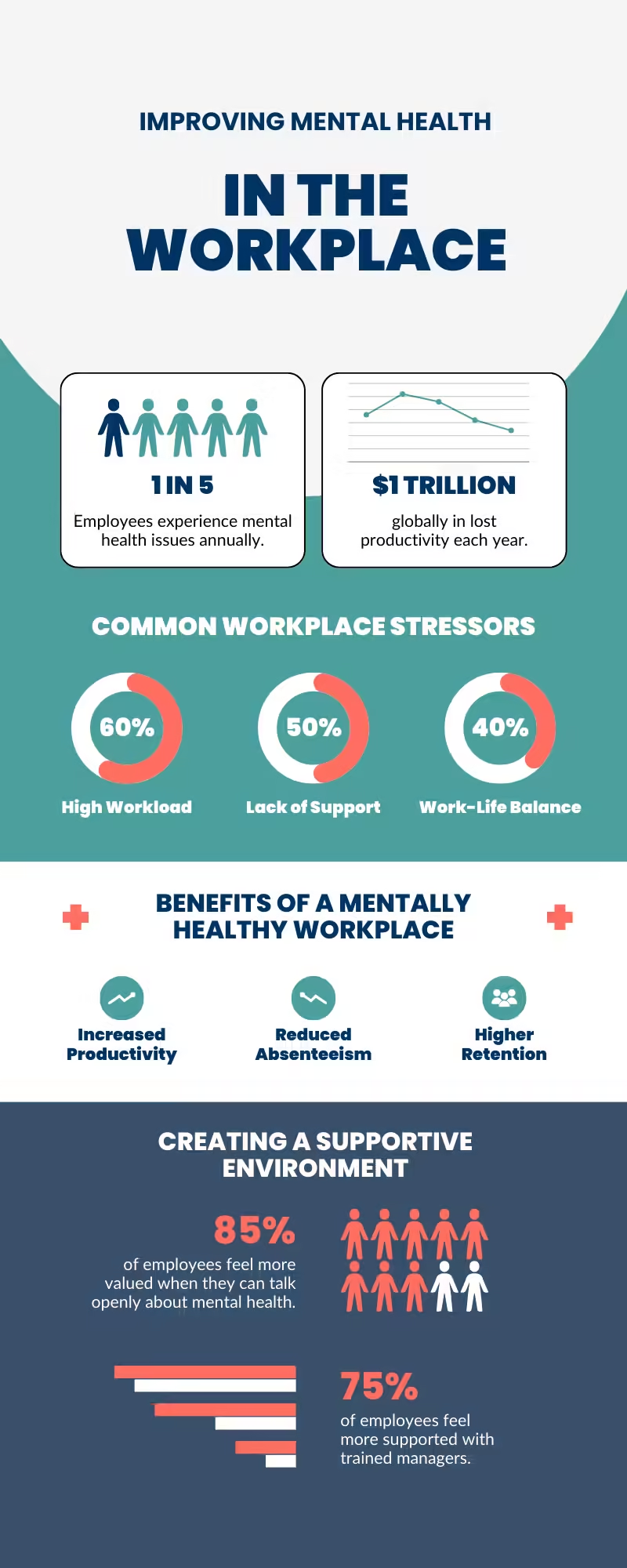It seems to be a part of our lives in this racing world that we used to refer to as a 24/7 society. We often get overwhelmed by different stressors that cause anxiety. The modern world is at full speed and its drawbacks are the disorders that are associated with it, including anxiety. Surviving in today’s fast-paced world may sometimes require you to face various pressures that could lead to anxiety. It is recommended to use the knowledge that is provided in “A Comprehensive Guide to Anxiety Management in Family, Office, and Social Settings.”
Living in the world of today implies facing a variety of challenges that can cause anxiety. It is not unusual for people to develop anxiety in the circumstances of the workplace or in the pressure of family and social duties; therefore, anxiety becomes a common part of modern life. I am going to address in this blog post some of the effective anxiety management strategies that can be used to overcome challenges within families, working environments, and social circles.
Understanding Anxiety
Disorders of Anxiety come in many forms. It isn’t one model of anxiety; rather, multiple individuals experience it in different ways. Examine generalized anxiety disorder (GAD) and social anxiety in addition to panic disorder, etc.
Recognizing Triggers
Identifying triggers is crucial. Describe family, office, and social triggers to help a reader understand the types of situations that can be the cause of anxiety in one’s life.
Family Matters
A Family Crisis
Open Communication
Communication is the backbone of family dynamics that are in good condition. Focus on the role of expressing emotions freely and offer tips that will be helpful for anxiety management.
Establishing Boundaries
Examine the importance of boundaries that are set up within a family structure. Using examples of how to express one’s personal space and time management tips may equally be advantageous.
Sharing Responsibilities
The weight of family duties may be tolling on mental health. Include a section dedicated to detailing how students can divide responsibilities among themselves as well as come up with a team effort to reduce pressure.
Office Blues
Coping with work pressures
Time Management
Time thus has to be utilized well and for that, what needs to be done is the need to prioritize, set goals and plan. The first step is to disaggregate work and classify it hierarchically into urgent and important. It helps you prioritize what is most important and to leave the unimportant things that could just waste time.
A motivation of a goal is that goals are specific yet realistic and measurable so that progress and focus are easily monitored. It is known that the effective utilization of time is made through planning methods like checklists and calendars, chronometers, etc. This structure is part of the anxiety management techniques that help a person to avoid the sense of an overload and regain necessary control over the tasks.
Constructive Feedback
Feedback is important for self development and career advancement at the place of work. When speaking to provide a critique advice, the following tips should be considered; one should describe what he or she has observed in details, one must not generalize on the individual, and one must provide the individual with ways on how to change. Being willing to accept constructive criticism makes room for career advancement, and mutual respect in the workforce.
Constructive feedback is healthy in the sense that it creates a safe environment where everyone can feel comfortable with the other, people can trust each other and respect each other. I mean that the absence of misunderstandings during this process decreases work-related stress, which is the essential element of anxiety management because of open communication and personal growth.
Establishing a Workplace Culture that Supports
In anxiety management, there is need to develop good work environment. If leadership wants to encourage the change of attitude in the working environment, it is necessary to accept it and support communication about mental health.
The principles to anxiety management culture includes acknowledging mental health as important, addressing support and resources, reframing expectations for flexible working. Happiness is good for everyone in that when employees understand that they are supported this will decrease stress hence improving productivity and good workplace relationships.
Social Challenges
Dealing with social situations
Social Anxiety is a thing I am dealing with
Discover social anxiety and assist students in developing skills for common gatherings. That may include exercises such as breathing, visualization, and gradual exposure to stimulus. These can significantly contribute in anxiety management.
Living with Expectations
Talk about how societies determine the behavior of people. Promote realistic expectations for readers to relieve social overexertion.
Providing a Network of Support
Stress the fact that a robust support network is critical. Help readers go out and get connected to friends or join community groups promoting a sense of belonging.
Holistic Approaches
Holistic Strategies in Anxiety Management
Attention and Self-awareness
For anxiety management, mindfulness and meditation are wonderful techniques that can be suggested. Give readers some easy exercises to start with as part of their daily practice.
Regular Exercise
To understand anxiety management, you have to understand relationship between physical exercise and psychological well-being. Corporate professionals should make exercise a regular part of their routine in an enjoyable form, so it contributes to stress reduction.
Search for Professional Assistance
Normalize seeking professional assistance. Touch upon the advantages of therapy, counselling, and other mental health events as a holistic technique of anxiety management.
Managing Anxiety in the Fast-Paced Office Environment
Having worked as a mental health specialist, I am aware that anxiety can permeate almost every aspect of the American way of life, but the stress of the workplace is particularly oppressive. Given the pressure to perform more work, meet deadlines, and the implicit requirement to be always on call, it is not surprising that anxiety has become a frequent companion of many employees. The current society, where everything is a race against time and people are expected to be constantly connected, can be detrimental to mental health if we do not learn how to defend ourselves.
Over the years, I have had a chance to work with many clients who approach me with stress that comes with working in an office. There are so many: emails, emails, and more emails; office politics; expectations that are nearly impossible to meet; and the constant pressure to prove that one is good enough. The following are the areas that we need to work on in an organization in order to foster good mental health, as we know that in the corporate world, the primary emphasis is placed on work and performance.
Recognizing the Impact of Office Culture on Mental Health
Let’s face it, the current American workplace has become a hotbed of anxiety. Whether it is a high-stress job within an organization or the stress that comes with having to work from home, people are a little on edge. Counselors and various people I talk to say how they already feel tired in the morning just thinking about the amount of work that will be waiting for them at the office.
Some of the things I have heard people say include: “I think I am unable to disconnect,” or “The expectation to be on call all the time is oppressive.” What has been troubling me for quite a while is the fact that overworking has become the new normal. Most people believe that it is normal to work many hours, not take lunch breaks, and answer emails at night. But over time, this kind of stress can cause burnout, depression, and anxiety disorders.
Research has also indicated that the United States is one of the most working nations globally, with about forty percent of American workers saying that their work is the source of stress in their lives. It can only spill over to other areas of life, such as family, social, leisure, and even health.
When the Pressure to Perform Becomes Overwhelming
Other causes of anxiety have been identified as stress to deliver, which has also been cited as a cause of anxiety in the workplace. At the workplace, there is always the pressure to perform better than others in the same position. Most of the clients I have worked with have a tendency of complaining about the pressure they receive from their superiors. They are always under pressure to achieve targets and meet set timelines with no time for mistakes. This culture of “working or dying” has negative impacts not only on the employees but also makes them feel incompetent. A general thing that many people have in common is the feeling of fear when they are at their workplace.

Whether it’s the anxiety that comes with a looming deadline or a presentation in front of their boss, the feeling of always falling short can be daunting. This kind of pressure can make a person work for more hours, forgetting the consequences on their health. It is important that we are aware of the fact that professionalism is a component of our working environment, and people are not going to define us by the number of emails we reply to or the number we receive.
Dealing Toxic Work Environments
I have also noticed how unhealthy corporate culture and a toxic workplace can contribute to the worsening of anxiety. Gossip, vague procedures, and the absence of support from managers mostly result in chaos. Most of the clients state that their workplaces are toxic or even detrimental to the extent of actively undermining each other, which makes even the simplest tasks stressful.
Some of the most terrible scenarios that my clients describe involve working with a horrible supervisor. From a boss who is overbearing and makes the employee doubt themselves to a boss who doesn’t offer any feedback at all, negative management styles can easily make an employee feel helpless.
There was one client who told me that his or her manager used to send emails at night and expect a reply that same night. This made them feel they always had to be on the lookout for something to occupy their time, which eventually made them lose personal space. It is, therefore, probable that, over time, these behaviors may affect the mental health of the individual in the wrong way, leaving them stressed, in need of anxiety management, and even depressed.

“Redefining Success” How I’ve Guided Clients to Protect Their Mental Health
I often explain to my clients that the first thing to do in order to deal with the stress of the workplace is to change the definition of success. To the majority of individuals, success means the ability to work and achieve goals. However, when we concentrate on results, we forget that we should live a healthy life first and foremost.
In therapy, I help clients change their thinking from “I have to do it” to “I have to take care of myself.” I also like to encourage people to draw their limits. In a world that celebrates hustle culture, one can easily develop the feeling of guilt for stepping away or even switching off at a decent time. But boundaries are important for the sake of mental health.
Some of the things I recommend include not responding to work emails at certain times, taking breaks at certain intervals in the day, and even taking time off when one is not well mentally. Sometimes, these minor changes can help decrease stress and help a person regain control over their life.
Coping with Anxiety in the Workplace
When my clients are overwhelmed by anxiety at the workplace, I guide them through effective anxiety management strategies, I teach them ways of managing anxiety in that environment. The most useful of them is breathing exercises. During a busy day at work, it is possible to spare a few minutes to take some deep breaths, which will help soothe the nervous system and reduce stress. I also suggest the use of deep muscle relaxation, a process of sequentially contracting and relaxing all the muscles of the body to release accumulated stress. I have realized that a large number of my clients are in a position to benefit from being taught how to say no.
At work, it is possible to schedule too many tasks because one does not want to disappoint others or appear inefficient. However, this means that one may become overwhelmed and stressed out, hence becoming anxious. It’s not selfish to say no; it’s about being a good team player and making sure you are in good shape to contribute positively to the team.
Natural Remedies and Support Systems
While I always prescribe medication and coping strategies, I often recommend natural methods to help with anxiety management. Ashwagandha and kava are two herbs I have suggested for clients who are in need of options. Ashwagandha is most effective in managing cortisol, which is useful in the control of stress in the long term. Kava is also a great herb that is used to create a state of relaxation; however, its use should be approached carefully since it can cause some unwanted effects.
Besides the natural solutions, social support cannot be overemphasized. Another great way to deal with office anxiety management is to seek out a group of people at work. I usually encourage people to look for colleagues who can understand the problem or turn to a club that will help. The reality is that people with anxiety feel lonely, and having someone to turn to makes a huge difference.
Prioritizing Mental Health in the Office
From my experience, I have come to understand that working in an office can be both boring and stressful. While the American work culture promotes positivity in being busy, the effects of uncontrolled stress are not good. Therefore, it is important to look for methods on how one can look after their mental health and regain some measure of control over their relationship with work.
Please do not forget that you are not a project or an outline of tasks achieved and that you do not need to spend many hours at work in order to be effective. Stress in the workplace is a common phenomenon, and it is quite all right to take precautions for one’s safety.It should also be an expectation that through treatment, personal care, or at least good counsel, people should be able to go to work without having to worry about their state of mind.
Final Words
In the end, anxiety management needs to be tailored according to the existing family, office, and social lifestyle structure. Through this knowledge of anxiety triggers and practical implementation of strategies, people can handle life’s difficulties with better resilience and calm stability.

Please keep in mind that the source of assistance is always available, and taking proactive measures towards anxiety management is indeed a sign of your inner strength.
For more tips and updates on time management and anxiety management, follow us on X (Twitter). Continue to receive updates to enhance your productivity and preserve your psychological state.
Interested in more topics? Visit other Categories to learn more about productivity, mental health, and company culture!





Your writing carries a quiet power, subtly shaping the way you see the world.